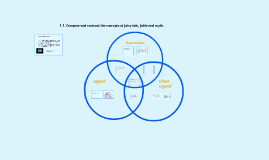- Matthew 25:13
Mighty blows of wind started attacking Tacloban, Leyte, and parts of Samar, afternoon of November 8, 2013. Haiyan began throwing splashes of water, but that was just not it. It felt like rain continuously and tremendously poured. This was worsened when storm surges occurred. The trees were uprooted, and these places were extremely flooded. Children were crying, families went starving, and people went missing- some were drowned, some could not be found. Then, when the super typhoon started to calm down and exited the Philippine Area of Responsibility, hundreds of communities were left devastated. Families had nothing left except for the clothes they wore that day. Haiyan only left debris.
Philippines experiences a number of calamities as it is located near the West Basin and the Pacific Ring of Fire. The most common calamities that visit the country are earthquakes and typhoons.
That being said, during the aftermath of the typhoon, the primary services from the Local Government Unit started within the residents themselves. Parents, teachers, as well as students lead in the distribution of relief goods. Despite the flooded roads, fallen trees, broken posts, and debris from infrastructure, they managed to deliver these goods to the areas of Leyte that were harder to reach. After a few days, a lot of places were still "underwater", but the condition was more stable. Donations from others were being distributed, and tents were being given out as temporary shelter. The community lost a lot, but not the bayanihan among the people.
This is a concrete example to show the resiliency of the people. This exact scenario is how Filipinos bandage the wounds brought by disasters.
But with resilience should come preparedness. Let us be reminded when Benjamin Franklin once mentioned, "An ounce of preparedness is worth a pound of cure." Let us reflect on the story of Noah a long time ago, when he encountered a death-defying calamity. That time, the storms strength was so powerful, it caused extreme floods. The forty days of rain cause water to rise so high, it covered the mountains. Fortunately, he, along with his family and two of each animal, survived. After all, it took him a hundred and twenty years to build an ark to serve as their shield against the challenges that the rain brought. He prepared, and so he survived.
In emergency management, preparedness and resiliency of us, citizens, will ultimately prove our strength amidst any calamity. Let preparedness be our umbrella- it won't stop the rain but it would help us get through it. And let resiliency be our bandage- it won't heal the wound immediately, but it would help in the process of recovery.
With our umbrella and bandage, we are ready to face any calamity, no matter how strong it may be.
